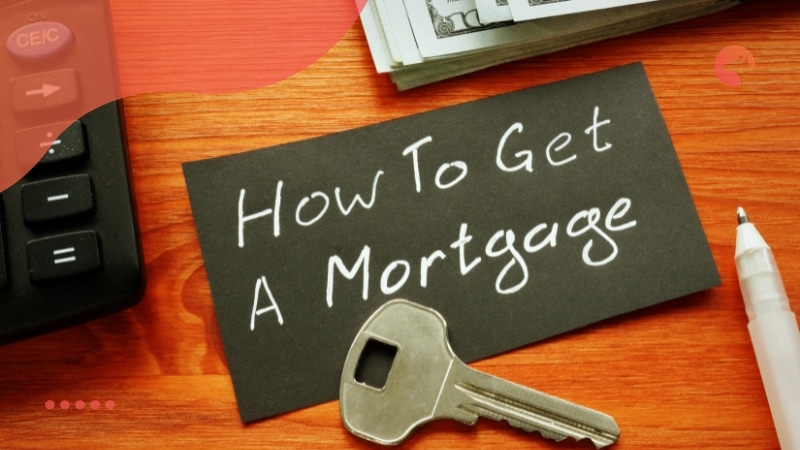How to get a mortgage can seem like a complex and daunting process for many people. Right from the start, understanding the basic steps involved is crucial to making informed decisions. Whether you’re a first-time homebuyer or someone looking to upgrade to a larger property, navigating the mortgage process requires careful planning and preparation.
Before diving into the specifics, it’s important to know that how to get a mortgage involves more than just filling out paperwork. Lenders want to ensure that you are a responsible borrower, which means your credit score, financial history, and income stability will all play significant roles in the approval process. Taking the time to gather the necessary documents and improve your credit standing can greatly increase your chances of securing a favorable mortgage deal.
Ultimately, learning how to get a mortgage will not only help you in purchasing your dream home, but it can also save you money in the long run. By understanding the intricacies of interest rates, loan types, and lender expectations, you will be better equipped to make decisions that align with your financial goals.
Comparing Mortgage Options Online (How to get a mortgage)

When navigating how to get a mortgage, it’s crucial to compare different lenders and loan types to find the best fit for your financial situation.
A great tool to assist in this process is Zillow Home Loans, which not only offers property listings but also provides a comprehensive mortgage comparison tool. Whether you’re looking for conventional loans, FHA loans, or jumbo loans, Zillow makes the process easier with its streamlined online experience.
By using such tools, you can ensure that you’re making an informed decision that aligns with your long-term financial goals.
The Mortgage Application Process
Now that you’ve prepared your finances, it’s time to apply for a mortgage. Here’s what the process typically looks like:
Pre-Approval vs. Pre-Qualification (How to get a mortgage)
Before you start house hunting, it’s essential to know the difference between pre-qualification and pre-approval. Pre-qualification gives you an estimate of how much you can borrow, while pre-approval involves a more thorough examination of your finances, giving you a clearer picture of the mortgage amount you can secure.
Choosing the Right Lender
Selecting the right lender is a critical part of how to get a mortgage. Factors to consider include interest rates, fees, and the lender’s reputation. Comparing offers from multiple lenders can help you get the best deal.
Viewing a Mortgage as a Long-Term Investment (How to get a mortgage)
When considering how to get a mortgage, it’s essential to view this commitment not just as a necessity for homeownership but also as a long-term investment. A mortgage can be one of the most significant financial decisions you’ll ever make, so it’s important to approach it with the mindset of maximizing its value over time. Like any investment, the goal is to build equity in your home while balancing the costs of interest and other associated fees.
In the same way that you would seek out the best financial investment tips to grow your wealth, applying strategic financial planning to your mortgage can ensure that your home becomes an asset rather than a liability. By understanding how to manage your mortgage payments, selecting the right loan, and planning for the future, you can turn your mortgage into a powerful investment tool.
FAQ: How to Get a Mortgage
1. What is the first step in getting a mortgage?
The first step in how to get a mortgage is to check your credit score and ensure your financials are in order. You should also begin saving for a down payment and gather all necessary documents, such as income statements and tax returns.
2. How much should I save for a down payment?
The amount you need for a down payment can vary depending on the type of loan. Generally, it ranges from 3% to 20% of the home’s purchase price. A larger down payment can reduce your mortgage payments and possibly eliminate the need for private mortgage insurance (PMI).
3. What credit score do I need to qualify for a mortgage?
Most lenders require a credit score of at least 620 for a conventional loan, though you may qualify for an FHA loan with a score as low as 580. However, a higher credit score will generally give you access to better interest rates.
4. What is the difference between pre-approval and pre-qualification?
Pre-qualification is an estimate of how much you can borrow based on information you provide. Pre-approval, on the other hand, involves a thorough review of your financials by the lender and gives you a clearer idea of the loan amount you’re eligible for.
5. How long does the mortgage approval process take?
The mortgage approval process typically takes between 30 to 45 days, depending on the lender, the complexity of your application, and the type of loan you’re applying for.
6. What documents do I need to apply for a mortgage? (How to get a mortgage)
You’ll need various financial documents, including recent pay stubs, W-2s, tax returns, bank statements, and proof of any additional income. Lenders may also ask for identification and information about any assets you own.
7. Can I get a mortgage if I’m self-employed?
Yes, self-employed individuals can get a mortgage, but the process may be more complicated. You’ll likely need to provide additional documentation, such as two years of tax returns and proof of consistent income.
8. How do interest rates affect my mortgage?
Interest rates significantly impact your monthly payments and the total cost of the loan. Lower interest rates reduce your monthly payments and the overall amount you pay over the life of the loan, while higher rates increase both.
Conclusion
In conclusion, learning how to get a mortgage is a critical step toward achieving homeownership. By understanding the various loan types, preparing your finances, and knowing what lenders are looking for, you can position yourself for a successful mortgage application. The process may seem complicated, but with the right approach, it can be manageable.
It’s important to treat your mortgage not only as a means to purchase a home but also as a long-term financial investment. By making smart decisions, such as comparing lenders and loan options, you can save money and build equity in your home over time.
Ultimately, the key to successfully navigating the mortgage process is preparation and knowledge. With careful planning and a clear understanding of your options, you can secure a mortgage that aligns with your financial goals and supports your path to homeownership.



